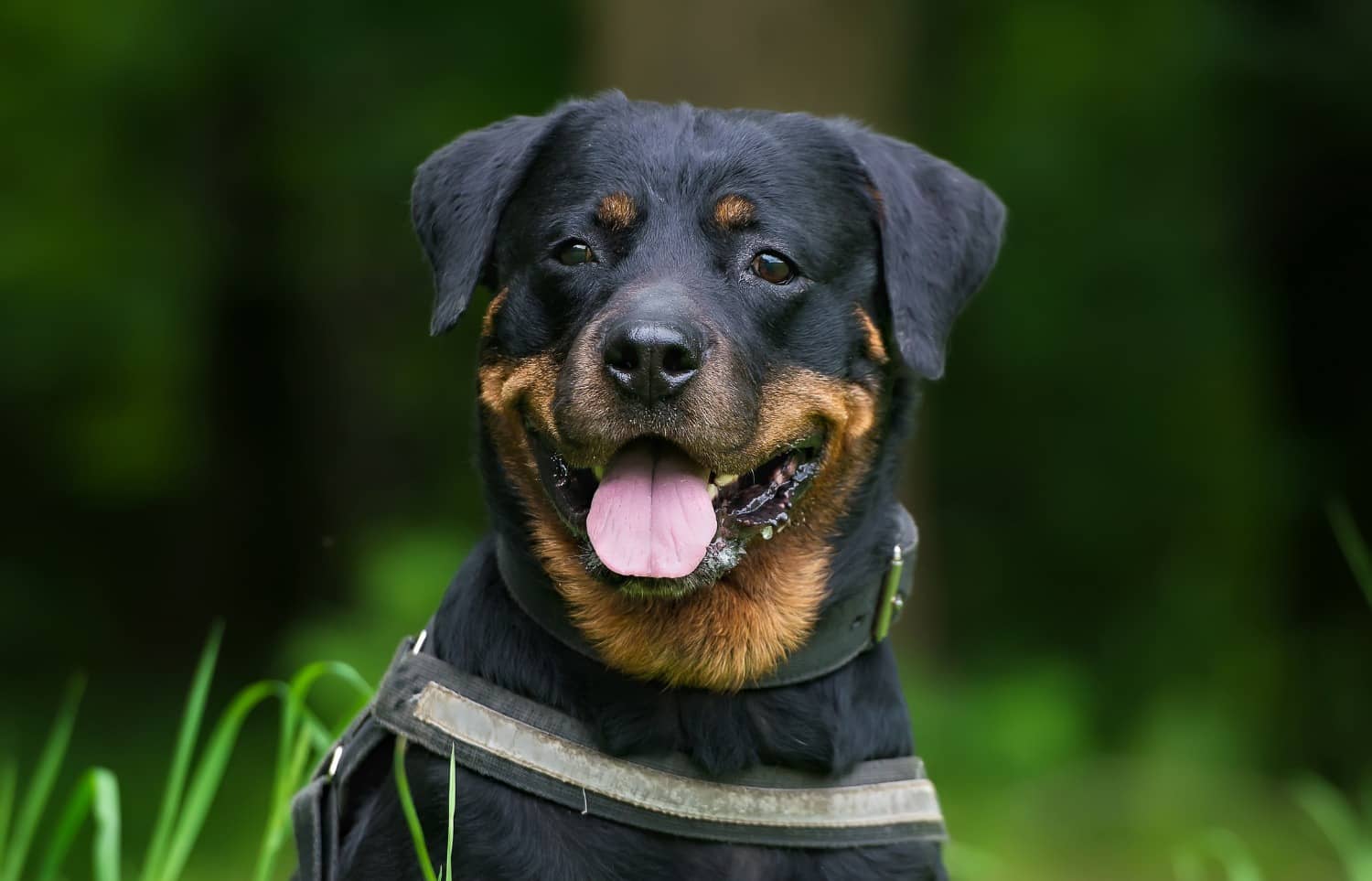
Rottweilers, known for their loyalty and protective nature, often communicate their feelings through vocalizations and body language. One intriguing question that many Rottweiler owners and enthusiasts ponder is whether these majestic canines emit growls when they’re experiencing happiness. In this article, we embark on a journey to explore the depths of Rottweiler’s behavior and decode the mysteries behind their unique vocalizations.
Table of Contents
Do Rottweilers Have Happy Growls?
The idea of a “happy growl” might seem contradictory at first glance. However, Rottweilers, like all dogs, possess a diverse range of vocalizations that convey different emotions. While growling is often associated with aggression, Rottweilers can produce a distinct type of growl when they’re joyful. This happy growl is usually accompanied by tail wagging, relaxed body language, and sometimes even playful antics.
How Do I Know If My Rottweiler is Happy?
Deciphering a Rottweiler’s emotions requires attentiveness to their body language, sounds, and behavior. When your Rottweiler is happy, you may notice:
- Tail Wagging: A wagging tail is a universal sign of a content Rottweiler. The speed and height of the wag can provide additional insights into their emotional state.
- Relaxed Posture: Happy Rottweilers exhibit a relaxed and open body posture. They might lie on their back, expose their belly, and playfully kick their legs.
- Playful Behavior: Engaging in play, such as fetching, romping, and interacting with toys, is a clear indicator of their joy.
- Happy Growls: As mentioned earlier, the happy growl is a distinctive vocalization that accompanies their joyful moments.
Why Does My Rottie Growl When I Hug Her?
Hugging a Rottweiler might trigger a growl, which can be puzzling for owners. However, it’s essential to understand that a growl in this context doesn’t necessarily signify aggression or displeasure. As descendants of working and herding dogs, Rottweilers have a strong sense of personal space. They might emit a low growl when you hug them tightly to communicate their discomfort. This growl is more of a communication tool, indicating that they’d prefer more space rather than a declaration of unhappiness.
What Do Rottweilers Do When They’re Happy?
When Rottweilers are happy, they engage in various behaviors that reflect their positive emotional state. These include:
- Tail Language: Their tail becomes an expressive tool, wagging vigorously from side to side. A happy Rottweiler’s tail might even wag its entire body!
- Social Interaction: They seek companionship and actively participate in interactions with their human family members or other pets.
- Playful Vocalizations: Besides the happy growl, Rottweilers might bark with excitement and make joyful noises during play.
- Lively Play: Engaging in playtime activities, such as chasing balls, tugging ropes, and running around, is a surefire sign of their happiness.
FAQs
Q: Can a Rottweiler’s happy growl be mistaken for aggression?
A: Yes, the happy growl can sometimes be misunderstood due to its resemblance to an aggressive growl. However, accompanying cues like tail wagging and relaxed body language can help differentiate the two.
Q: Are all Rottweilers prone to happy growling?
A: While many Rottweilers exhibit happy growling behavior, individual differences can occur based on personality, socialization, and past experiences.
Q: How can I encourage my Rottweiler’s happiness?
A: Providing regular exercise, mental stimulation, social interactions, and affectionate bonding moments can contribute to your Rottweiler’s overall happiness.
Q: Should I be concerned if my Rottweiler growls while playing?
A: Growling during play is often a sign of excitement rather than aggression. However, monitoring their behavior and consulting a professional is wise if uncertain.
Q: Can Rottweilers experience a range of emotions like humans?
A: While not as complex as human emotions, Rottweilers experience a spectrum of feelings, including happiness, excitement, contentment, and even anxiety.
Q: Is it possible to train a Rottweiler to control their growling?
A: Yes, through consistent training, positive reinforcement, and socialization, you can teach your Rottweiler to adjust their vocalizations appropriately.
In the world of Rottweilers, growling isn’t solely reserved for aggression; it’s a nuanced form of communication that reflects their emotions. The concept of a happy growl sheds light on how these dogs express joy and contentment. By understanding their body language, sounds, and behaviors, you can forge a deeper connection with your Rottweiler and create an environment where their happiness thrives. So, the next time you hear that distinctive growl, accompanied by a wagging tail and gleaming eyes, you’ll know that your Rottweiler is experiencing the pure bliss of happiness.








Comments (1)
Finleysays:
09/03/2024 at 04:14I love how expressive Rottweilers are with their happy growls! It’s fascinating to learn about their unique vocalizations and how they communicate joy. Can’t wait to observe these behaviors in my own Rottweiler!